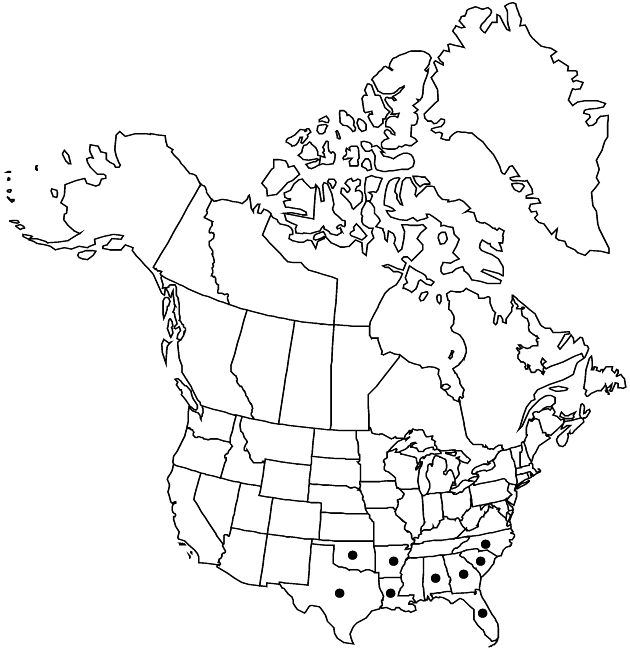Difference between revisions of "Pityopsis graminifolia var. tenuifolia"
Rev. Pityopsis, 24. 1985.
Endemic
Basionym: Inula graminifolia var. tenuifolia Torrey Ann. Lyceum Nat. Hist. New York 2: 212. 1827
Synonyms: Chrysopsis graminifolia var. microcephala (Small) Cronquist Heterotheca microcephala (Small) Shinners Pityopsis graminifolia var. microcephala (Small) Semple
FNA>Volume Importer |
imported>Volume Importer |
||
| Line 6: | Line 6: | ||
|place=24. 1985 | |place=24. 1985 | ||
|year=1985 | |year=1985 | ||
| + | }} | ||
| + | |special_status={{Treatment/ID/Special_status | ||
| + | |code=E | ||
| + | |label=Endemic | ||
}} | }} | ||
|basionyms={{Treatment/ID/Basionym | |basionyms={{Treatment/ID/Basionym | ||
| Line 63: | Line 67: | ||
|publication title=Rev. Pityopsis, | |publication title=Rev. Pityopsis, | ||
|publication year=1985 | |publication year=1985 | ||
| − | |special status= | + | |special status=Endemic |
| − | |source xml=https:// | + | |source xml=https://bibilujan@bitbucket.org/aafc-mbb/fna-data-curation.git/src/bb6b7e3a7de7d3b7888a1ad48c7fd8f5c722d8d6/coarse_grained_fna_xml/V19-20-21/V20_503.xml |
|tribe=Asteraceae tribe Astereae | |tribe=Asteraceae tribe Astereae | ||
|genus=Pityopsis | |genus=Pityopsis | ||
Revision as of 20:49, 27 May 2020
Cauline leaves slightly overlapping, linear-lanceolate, 40–70 × 2–5 mm, reduced distally. Involucres 4.5–8 mm. Phyllary faces (inner) usually sparsely to moderately, rarely densely sericeous throughout, sometimes sparsely glandular distally. Ray florets 8–12; laminae 4–7 mm. Disc florets 15–28; corollas 4.5–6 mm, lobes 0.4–0.7 mm, glabrous. 2n = 18.
Phenology: Flowering early fall–spring (Fla).
Habitat: Sandy soils, open oak-pine woods, scrub, roadsides
Elevation: 0–300 m
Distribution

Ala., Ark., Fla., Ga., La., N.C., Okla., S.C., Tex.
Discussion
Variety tenuifolia grows on the outer coastal plain from east Texas to North Carolina, and inland to the southern Ozark Plateau. Involucres of some Texas plants are larger than those further east. It is unknown whether such plants are diploid or tetraploid.
Selected References
None.
Lower Taxa
None.